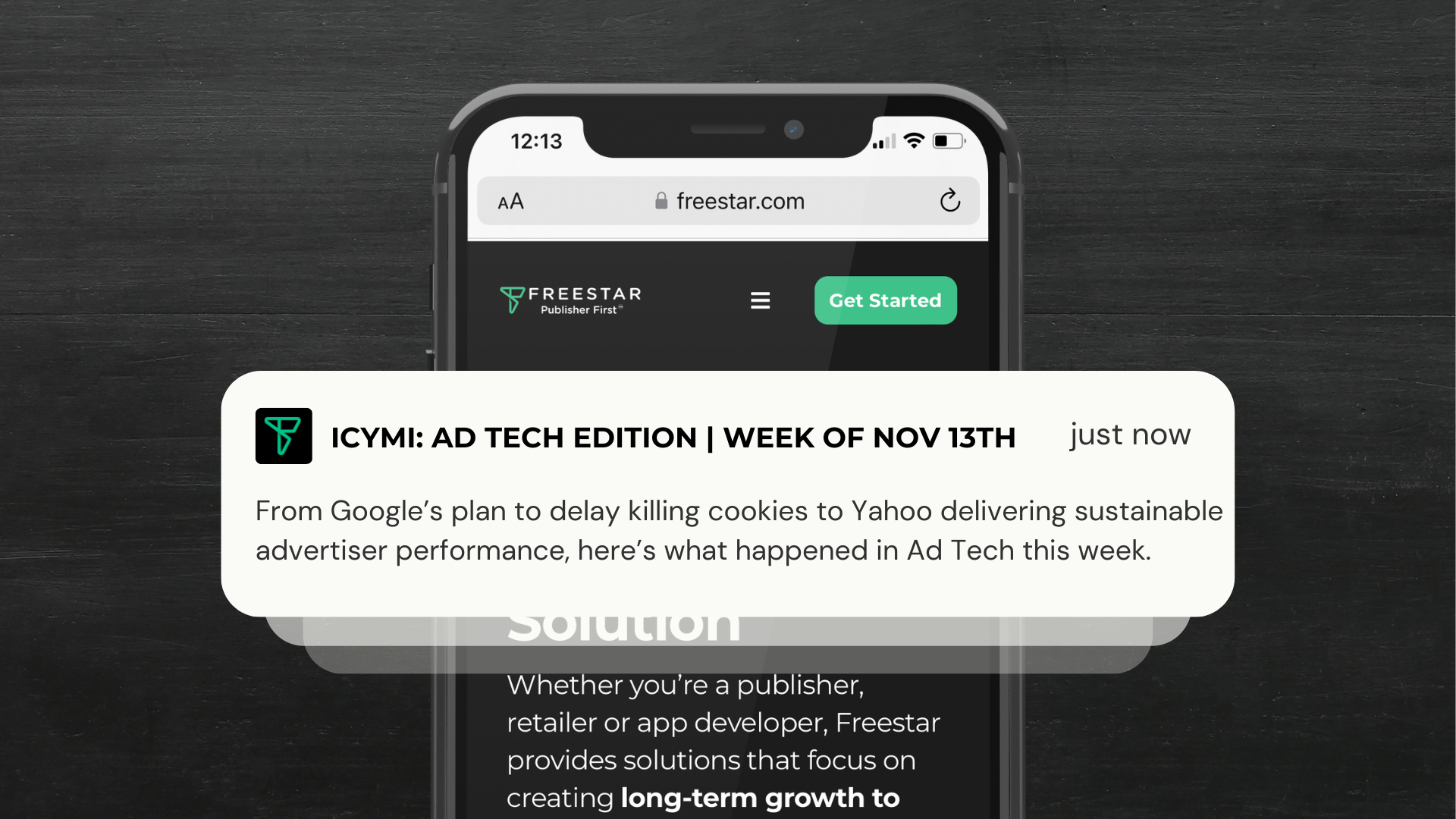Bits and Bobs from around the industry:
Google Might Have to Delay its Plan to Kill Tracking Cookies Until 2025, Ad Industry Experts Believe
There is a growing belief within the advertising industry that Google may not be able to eliminate third-party tracking cookies until 2025, contrary to its stated 2024 deadline. This speculation is based on updates from the regulatory body overseeing the process and discussions among companies testing Google’s proposed cookie alternatives. The UK’s Competition and Markets Authority (CMA) aims to collect evidence about the changes’ impact by mid-2024 and has a standstill period before Google can switch off cookies if the Privacy Sandbox technologies are approved. Concerns from publishers, ad tech companies, and privacy experts persist, indicating significant challenges in meeting the proposed timeline.
Some industry experts express skepticism about Google’s ability to get approval for changes of this magnitude within the specified timeframe. Despite official statements, stakeholders are uncertain about the readiness and competitive aspects of Google’s Privacy Sandbox technologies. The industry is eager to move past the uncertainty surrounding third-party cookies, but skepticism remains about whether Google can meet the 2024 deadline.
2024 Looks to Be a Defining Year for the Ad Market
In 2024, the global advertising industry is predicted to experience a significant upturn, with ad spend growth reaching 8.2%, up from a modest 4.4% in 2023, according to marketing intelligence firm WARC. This surge is expected to propel the market past $1 trillion for the first time. The UK’s Institute of Practitioners in Advertising (IPA) anticipates a slight decline of -0.6% in ad spending for the country in 2024, with a rebound to 1.3% growth in 2025 after a “shallow recession.” Meanwhile, WARC forecasts a 3.9% increase in UK ad budgets in 2024, reaching $45 million (£37.5 million). In the U.S., it is predicted that the market will contribute over one-third of global ad spend, growing by 7.6% in 2024 to reach $326.7 billion.
Digital advertising, encompassing display, video, search, and social media, is expected to dominate global media plans for Chief Marketing Officers (CMOs). Retail media spending is set to increase by 10.2% year-on-year, reaching $141.7 billion in 2024, positioning itself to surpass linear TV as the third-largest channel by spend in the coming years. Despite the overall positive outlook, some caution is advised, with suggestions that advertisers should not be swayed by short-term digital gains. Traditional channels like TV, radio, and newsbrands are emphasized for their effectiveness in driving both short-term performance and long-term effects.
Yahoo Backstage Adds New Publishers, Begins Delivering Sustainable Performance for Advertisers
Yahoo Advertising has introduced enhancements to its publisher-direct offering, Yahoo Backstage, featuring integrations with premium publishers like DIRECTV, The E.W. Scripps Company, LG Ad Solutions, Mediavine, Realtor.com, TelevisaUnivision, and Warner Bros Discovery. With nearly 40 of over 100 premium publishers being Connected TV (CTV) publishers, Yahoo Backstage, available exclusively through the Yahoo DSP, provides advertisers with direct access to curated, premium publisher inventory. This move is designed to elevate engagement, brand visibility, and return on investment across multiple channels.
Yahoo Backstage also emphasizes sustainable buying practices by streamlining the number of technology participants and supporting MFA-free inventory. According to a study by Scope3 and Eubiquity, carbon emissions on MFA (multiple-factor authentication) inventory are 26% higher than on non-MFA inventory. Yahoo Backstage has been acknowledged by Jounce Media as the largest MFA-free supply source on the open web.
In response to industry needs for premium, safe, and diverse inventory, Yahoo Backstage has been well-received. Advertiser Perceptions’ Chief Strategy Officer, Kevin Mannion, notes that Yahoo Backstage appears to be a robust response to advertisers’ requirements. Elizabeth Herbst-Brady, Chief Revenue Officer at Yahoo, highlights the impact of Supply Path Optimization (SPO) on the advertising industry and emphasizes Yahoo’s commitment to enabling buying choices and fostering strong partnerships with advertisers, publishers, and SSP partners.
As Yahoo Backstage gains momentum, advertisers and publishers stand to benefit from premium access to a platform that enhances their reach and delivers optimal outcomes. The move has garnered positive responses from Yahoo Backstage publishers, including DIRECTV, Mediavine, Realtor.com, and TelevisaUnivision, emphasizing the value of direct integrations and partnerships in a rapidly evolving advertising landscape.






